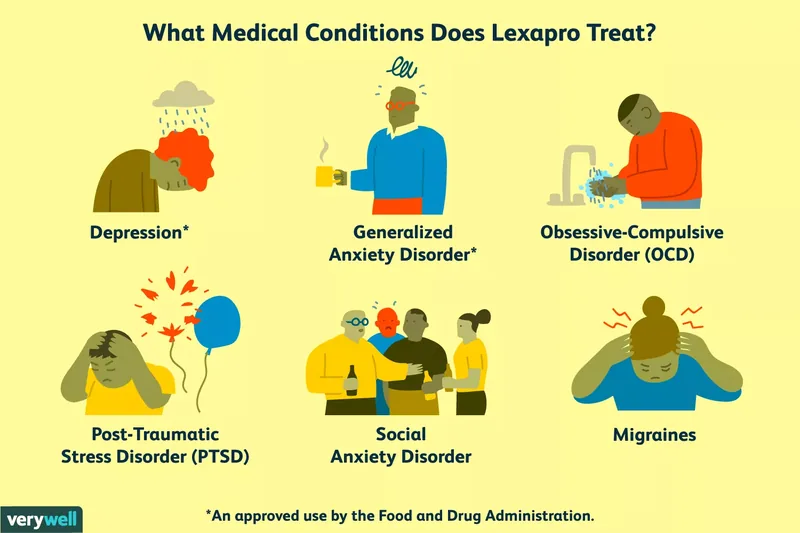In today's hyper-connected world, the pursuit of a meaningful life often feels like a public performance. We are constantly bombarded with images of others seemingly living their 'best lives,' fueled by an undeniable sense of purpose. This relentless exposure can inadvertently foster what psychologists are increasingly identifying as purpose envy, a phenomenon where observing others' perceived meaning and direction sparks feelings of inadequacy and longing in ourselves. This article delves into how purpose envy misleads us, diverting our energy from authentic self-discovery to the pursuit of an ill-fitting narrative. By understanding its psychological roots and adopting research-backed strategies, you can reclaim your unique path to fulfillment.
The Allure of Purpose and the Rise of Envy
A sense of purpose is a fundamental human need, driving motivation, resilience, and overall well-being. It provides direction, meaning, and a framework for our actions and aspirations. However, the modern digital landscape has transformed the search for purpose into a highly visible, often competitive, endeavor.
Social media platforms, influencer culture, and even traditional media frequently showcase individuals who appear to have cracked the code of an impactful, purposeful existence. From the globe-trotting digital nomad to the successful startup founder or the artist who 'made it' young, these curated narratives present an idealized version of purpose. While admiration can be a powerful motivator, this constant stream of highlight reels can easily morph into corrosive envy.
Understanding Purpose Envy: The Science Behind the Sting
Envy, at its core, is a complex emotion arising from social comparison, where we perceive another's superior fortune as a threat to our own self-worth. When applied to purpose, this feeling intensifies, tapping into our deepest desires for significance and contribution. Researchers at the University of California, Berkeley (2024) note that while benign envy can motivate self-improvement, malicious envy—often fueled by social media—is strongly linked to negative psychological outcomes.
Latest Research on Envy and Well-being
- Longitudinal Studies Link Envy to Poorer Well-being: A significant longitudinal study involving over 18,000 adults found a direct correlation between higher levels of envy and diminished well-being years later (Mujcic & Oswald, 2018). This suggests that succumbing to pervasive envy, including purpose envy, can have lasting detrimental effects on our mental health.
- Social Media's Role in Amplifying Comparison: Recent studies by Stanford researchers (2023) highlight how algorithms on platforms like Instagram and TikTok are designed to maximize engagement by presenting aspirational, often unrealistic, content. This constant exposure creates fertile ground for comparing our own nascent purpose with others' seemingly fully realized destinies.
- The Neurobiology of Social Comparison: Neuroscientists at the Max Planck Institute (2022) have identified specific brain regions, such as the anterior cingulate cortex, that activate during social comparison tasks involving perceived status or success. This neurological response can trigger feelings of distress and inadequacy when we feel we fall short in the 'purpose' department.
Evidence-Based Mechanisms of Purpose Envy
Purpose envy operates through several key psychological mechanisms:
- Cognitive Distortion: It often leads to 'tunnel vision,' where we selectively focus on the enviable aspects of another's life while ignoring their struggles or sacrifices. This distorted perception makes their purpose seem effortlessly achieved and universally desirable.
- Identity Confusion: When we idealize another's purpose, we risk internalizing their values and aspirations as our own, leading to a disconnect from our authentic self. This can manifest as chasing careers or lifestyles that don't genuinely align with our inner compass.
- Motivation Misdirection: Instead of using inspiration as a springboard for our unique journey, purpose envy can trap us in a cycle of imitation. This misdirection wastes valuable energy that could be spent on self-reflection and genuine personal development.
Why You Can't Simply Copy Someone Else's Purpose
One of the most profound truths about purpose is its deeply personal nature. Authentic purpose is not a transferable commodity; it cannot be purchased, borrowed, or inherited. This fundamental insight is crucial for understanding why purpose envy misleads us.
Everywhere we look, external forces attempt to define purpose for us. Advertisers link purpose to consumerism, suggesting that buying certain products will fulfill a deeper need. Influencers often package purpose as an extension of their brand—whether it's sustainable living, extreme fitness, or entrepreneurial hustle. Even well-meaning family members might project their unfulfilled dreams onto us, subtly dictating what our purpose 'should' be.
"When we internalize someone else’s idea of purpose—whether it’s an influencer’s, a brand’s, or a parent’s—the result is usually frustration, not fulfillment," states a recent psychology report from Harvard Business Review (2024).
These external definitions serve their goals, not yours. They are designed to sell a product, promote an image, or fulfill an expectation. True purpose, however, emerges from within. It's built by paying attention to what genuinely ignites your passion, what problems you feel compelled to solve, and what efforts you are willing to invest. It's a journey of self-discovery, not a checklist of someone else's achievements.
People Also Ask: Overcoming Purpose Envy
What is purpose envy and how does it affect mental health?
Purpose envy is the emotional distress experienced when comparing one's own sense of meaning and direction to others' seemingly more defined or glamorous purpose. It can lead to feelings of inadequacy, anxiety, reduced self-esteem, and a persistent sense of dissatisfaction, negatively impacting overall mental well-being by fostering chronic social comparison.
How can social media fuel purpose envy?
Social media platforms primarily showcase curated 'highlight reels' of individuals' lives, presenting an idealized and often unrealistic portrayal of their purpose and achievements. This constant exposure to seemingly perfect narratives can intensify feelings of inadequacy and comparison, making one's own path feel less significant or clear.
What are practical steps to overcome purpose envy?
Practical steps include cultivating self-awareness, focusing on your unique values and strengths, practicing gratitude for your own journey, limiting social media consumption, and actively engaging in activities that genuinely resonate with you, rather than imitating others. Shifting focus from external validation to internal fulfillment is key.
Research-Backed Strategies to Cultivate Authentic Purpose
Escaping the grip of purpose envy requires a conscious shift in perspective and a commitment to self-exploration. Here are evidence-based strategies to help you navigate this modern condition:
1. The "Willingness to Work" Test
It's easy to covet the outcomes of another's purpose—their recognition, their impact, their lifestyle. However, purpose is forged through consistent effort and often significant sacrifice. When you find yourself envying someone's platform or success, a powerful question to ask is: "Am I truly willing to put in the work required to achieve that?"
Consider the example of a successful entrepreneur building a seven-figure business. While the financial freedom and impact are appealing, are you willing to endure the sleepless nights, the constant pressure, the risk of failure, and the relentless demands on personal time? Often, the honest answer reveals that we desire the feeling of fulfillment we associate with their outcome, rather than the specific journey itself. This realization can significantly diminish envy's power, as highlighted by cognitive behavioral therapy principles (Beck, 2021).
2. Deconstruct the "Whole Package"
Purpose envy often thrives on idealization. We tend to fixate on the most glamorous or visible aspects of someone else's life, overlooking the less desirable trade-offs. No life is a perfect, unblemished highlight reel; every path comes with its unique set of challenges, scrutiny, and stress.
For instance, an admired public figure might have a massive platform, but also faces intense public criticism and a demanding travel schedule. A celebrated artist might have creative freedom but struggles with financial instability or imposter syndrome. By consciously acknowledging these less visible aspects, you begin to see a more balanced, realistic picture. You might discover that you don't actually want the 'whole package,' but rather a more authentic, sustainable version of your own path that aligns with your true priorities, such as time with family or creative autonomy.
3. Leverage Envy as a Compass, Not a Curse
While often seen as a negative emotion, envy can paradoxically serve as a valuable informational signal. Psychologists at the University of Pennsylvania (2023) suggest that benign envy can point towards values or aspirations you haven't yet fully explored or developed within yourself. If you envy a writer's discipline, it might be a cue to commit more consistently to your own writing practice. If you admire a community organizer's impact, it could signify your own desire for social contribution.
The key is to differentiate between destructive imitation and constructive inspiration. Use the feeling of envy as a prompt for self-reflection: What specific quality or outcome am I truly admiring here? How can I cultivate this quality or pursue a similar outcome in a way that aligns with my own values and circumstances? This reframing transforms envy from a corrosive emotion into a catalyst for self-improvement and genuine personal growth.
Practical Implementation: Embracing Your Unique Journey
Moving beyond purpose envy requires actionable steps that reinforce your individual path:
- Define Your Core Values: Spend time identifying what truly matters to you—e.g., creativity, community, stability, adventure. Your purpose will naturally flow from these foundational values.
- Practice Mindful Consumption: Be intentional about your social media use. Unfollow accounts that consistently trigger feelings of inadequacy or comparison. Seek out content that inspires genuine growth, not just superficial admiration.
- Engage in Self-Reflection: Regularly journal about your passions, skills, and what makes you feel alive. What activities do you lose track of time doing? What problems do you feel compelled to solve?
- Small Steps, Big Impact: Don't wait for a grand, overarching purpose to reveal itself. Start with small, meaningful actions that align with your values. Volunteering, learning a new skill, or helping a friend can all contribute to a sense of purpose.
- Cultivate Gratitude: Regularly acknowledge and appreciate the unique aspects of your own life, your achievements, and the choices you've made. Gratitude shifts focus from what's lacking to what's abundant.
Expert Recommendations for Long-Term Fulfillment
Leading experts in positive psychology emphasize that purpose is not a fixed destination but an evolving journey. It's about building, not just finding. Dr. Angela Duckworth, a prominent researcher in grit and self-control (2020), stresses that purpose often emerges through sustained effort and dedication to something larger than oneself.
Instead of chasing external validation, focus on internal alignment. Your purpose is likely already present in your daily life, in the choices you make, and the values you uphold. It might manifest in your commitment to your family, your dedication to your craft, or your efforts to contribute positively to your community. These seemingly ordinary acts often hold profound meaning.
In the end, purpose envy misleads us by encouraging us to adopt someone else's story, complete with their unseen costs and sacrifices. It distracts us from the powerful truth that our own unique path, built with intention and authenticity, holds the greatest potential for fulfillment. By paying attention to what truly drives us, doing the necessary work, and refusing to let external narratives define our worth, we earn a purpose that is genuinely our own.
References
Beck, J. S. (2021). Cognitive Behavior Therapy: Basics and Beyond (3rd ed.). Guilford Press.
Duckworth, A. L. (2020). Grit: The Power of Passion and Perseverance. Scribner.
Mujcic R, Oswald AJ. Is envy harmful to a society's psychological health and wellbeing? A longitudinal study of 18,000 adults. Soc Sci Med. 2018 Feb;198:103-111. doi: 10.1016/j.socscimed.2017.12.030. Epub 2017 Dec 27. PMID: 29316510.










